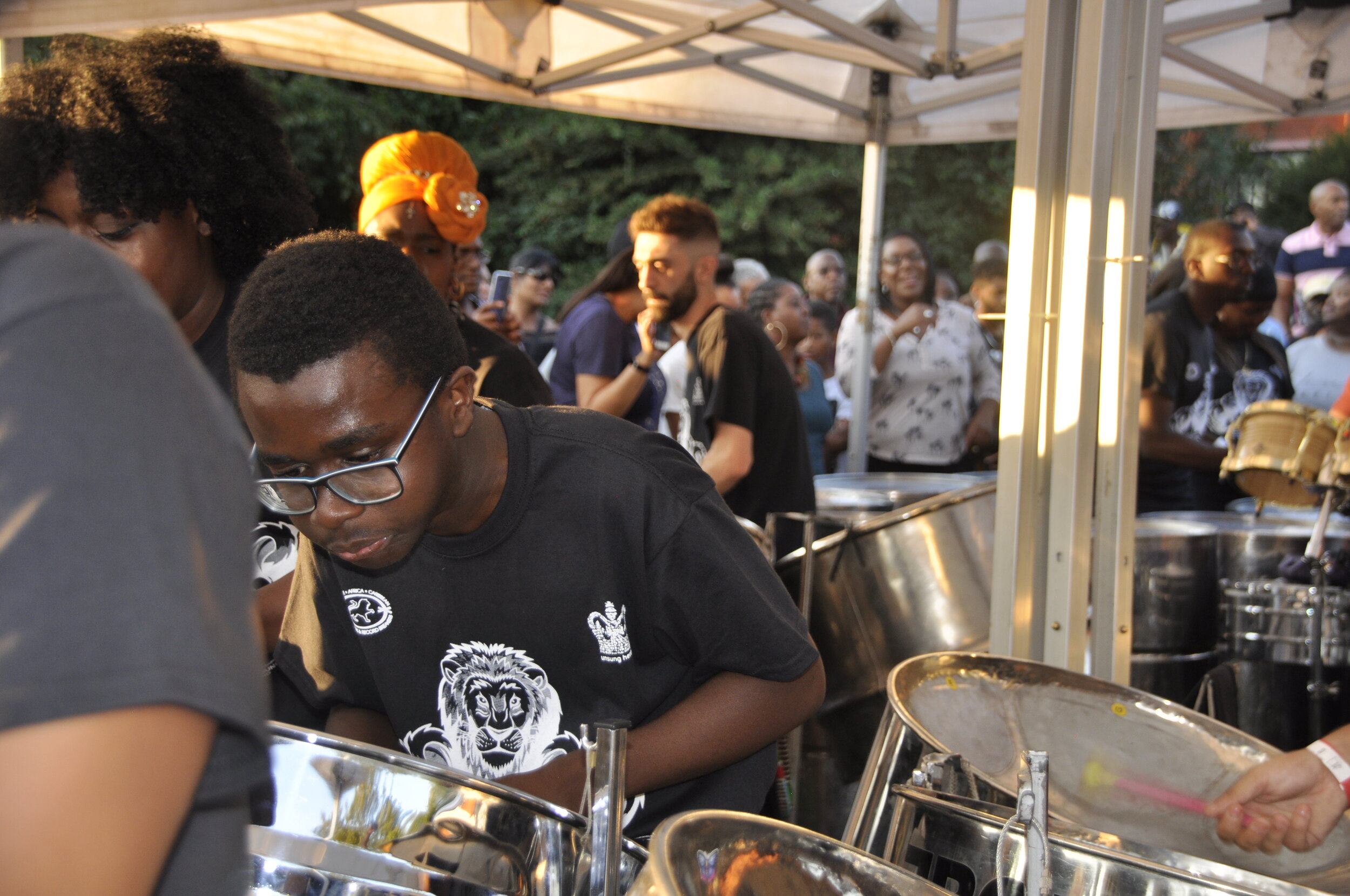Jericho 'Jay Jay' Phiri - Music can change the world because it can change people!
Jericho ‘Jay Jay’ Phiri is a very talented young musician who is very driven to achieve the best. He is quite humble and accepts that you must walk before you run and his musical career is a perfect example. Jay Jay as he is fondly referred to is a great team player and that quality is of utmost importance in a steelband as it is We not I in a steelband - teamwork is key.
He is willing to accept positive criticism as it leads to further development both in his musical career and also as a person. Panpodium is very proud to have had the opportunity to interview this young musician who has his feet firmly planted on the ground but his aspirations are floating with the clouds. The sky is the limit.
PP: When was your first panorama? ‘
JP: 2015 with Croydon Steel Orchestra – Different Me arranged by David Ijaduola
PP: First band you played for?
JP: Croydon Steel Orchestra in 2014
PP: What made you want to start playing pans?
JP: At first, it was an excuse to get out of music lessons that my school provided. But along the way, I realised there are different things about pan that make it different from normal instruments. I was intrigued and I stayed playing to find out more about steel pan.
PP: When did you start playing pan?
JP: In primary, I started in 2009 but, I found too hard so I stopped. But in 2012, I got offered the chance to play again and I took it.
Jay Jay playing with Ebony.
PP: What steel bands have you played for?
JP: Croydon Steel Orchestra in the past and I’m a part of Ebony Steel Orchestra currently
PP: What is your role in Ebony Steel Orchestra?
JP: My role is to just play. I tend to do a lot of manual work around the office as a right hand to Pepe Francis but really, I just play my pan and go. I am also Co-ordinator of Ebony Juniors.
PP: How important is that role and what skills do you need to fulfil that role?
JP: I consider my role to be as important as anyone else’s. However, when it comes to working with Pepe, you’ve got to learn to take things on the chin. Whenever he cusses me, I know I’ve done a good job at the task he’s given me and this is him showing his thanks (He loves me really). With Ebony Juniors, you’ve got to approach them from a management perspective, which sometimes can be hard as these will be the same people you go to party and fete with.
PP: If you could play for any band in the world what band would you want to play with?
JP: Renegades, Desperados and Exodus
PP: What steelband competitions have you taken part in?
JP: I have performed in 5 UK Junior Panorama, 5 UK National Panorama and the UK Pan Explosion in 2016
PP: What was the most challenging thing you have done to do with pans?
JP: Learning notes on pans. As a tenor player, I’ve always struggled learning the notes on the pan. Once I properly learnt my notes, I had an arranger call out a different variation of the same note. I never studied music so it definitely threw me off. Ever since then, I’ve committed myself to learn notes on different pans and different names of notes.
Jay Jay playing at Ebony Blockorama
PP: What’s been the most inspirational moment in your life?
JP: When I left Croydon, I had no faith that I was going to get into Ebony. However, they allowed me in. When I first started playing for them, I received many positive comments regarding my technique and rolling etc. To me, it was inspirational as, it showed me how far I’ve come from and what more I could do.
PP: What is your favourite pan to play?
JP: Tenor is the best pan for me. However, I do dabble with the 3-Pan from time to time.
PP: Who are your inspirations both to do with pans and musically?
JP: There’s so many but, I would love to play musical pieces from Duvone Stewart, Andre White and Boogsie Sharpe.
PP: What are your hopes with pan?
JP: I want to become the best player I can be. Everyone has space for improvement, me included.
PP: What is your vision for pan in the future?
JP: I wish for pan to become a more mainstream instrument. I think for too long it has been regarded as “an instrument from the Caribbean” instead of “an instrument.”
PP: What are your musical aspirations for the future?
JP: I want to develop more musical knowledge and theory. I’ve always wanted to play in Trinidad. Lastly, to build that confidence needed for soloing.
Jay Jay playing at Ebony Blockorama
PP: What do you think needs to be done to encourage more young people to the steelpan artform?
JP: I think recruiting players from schools is a good attempt. I also think offering steel pan lessons to your community is a good way of encouraging pan.
PP: What do you think needs to happen in the UK for the steelpan instrument and its culture to be more widely recognised on all musical platforms.
JP: People need to stop holding the stereotype associated with pan (black man, Hawaiian shirt, Caribbean) and start thinking of it as a fresh slate. Also, not many bands sign up to music platforms like Spotify or Deezer. I think once that route is explored and updated thoroughly, the pan community may get closer to mainstream, if not in it.
Jay Jay playing at the UK Junior Panorama 2018










